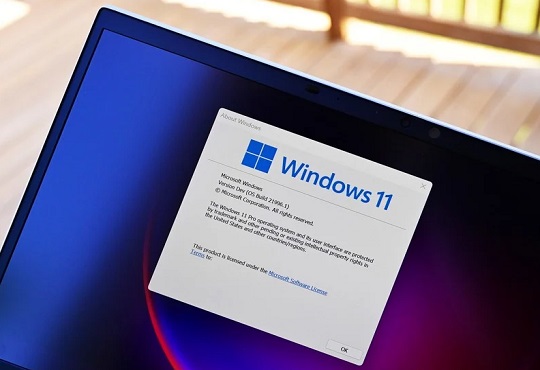Microsoft has unveiled the next generation of its Windows software, called Windows 11
CIOReviewIndia Team | Friday, 25 June 2021, 09:04 IST
 Software giant Microsoft has revealed the next generation of its Windows software, called Windows 11. The newest version of Microsoft's flagship operating system will be a successor to Windows 10, which the company introduced in 2015. The first major update in 6 years brings several new additions including new Start Menu and Android apps. In a significant move, Microsoft has integrated Android apps into its new OS. Android apps will run natively on Windows 11 and will be downloadable from Amazon's Appstore. These apps will be listed in the Windows Store.
Software giant Microsoft has revealed the next generation of its Windows software, called Windows 11. The newest version of Microsoft's flagship operating system will be a successor to Windows 10, which the company introduced in 2015. The first major update in 6 years brings several new additions including new Start Menu and Android apps. In a significant move, Microsoft has integrated Android apps into its new OS. Android apps will run natively on Windows 11 and will be downloadable from Amazon's Appstore. These apps will be listed in the Windows Store.
Android apps on Windows 11 can be pinned to the taskbar or snapped alongside traditional Windows apps. These apps will work with Windows 11's new layout features. Windows 11 brings a new pop-up store for apps. The new pop-up store aims to make it easy for users to install apps from the browser; when a user clicks a Microsoft Store download badge on a web page, the Microsoft Store will pop up to manage the install, all this without pulling away from what he/she was doing.
So far PC users used emulators to run Android apps on their systems. Microsoft too will be doing something similar with its partnership with Intel. It will be using the Intel Bridge technology to make this a reality. Intel Bridge Technology is a runtime post-compiler that enables apps to run natively on x86-based devices, including running those apps on Windows. Intel terms this as a part of its multi-architecture XPU strategy that provides the engines for the workloads by integrating CPU cores, graphics technology, artificial intelligence accelerators, image processors and more, in a single, verified solution.
























































.jpg)
.jpg)








.jpg)

.jpg)

.jpg)
.jpg)



.jpg)


.jpg)





























.jpg)

.jpg)
.jpg)

.jpg)
.jpg)

































.jpg)

.jpg)



















.jpg)
















.jpg)












































































































